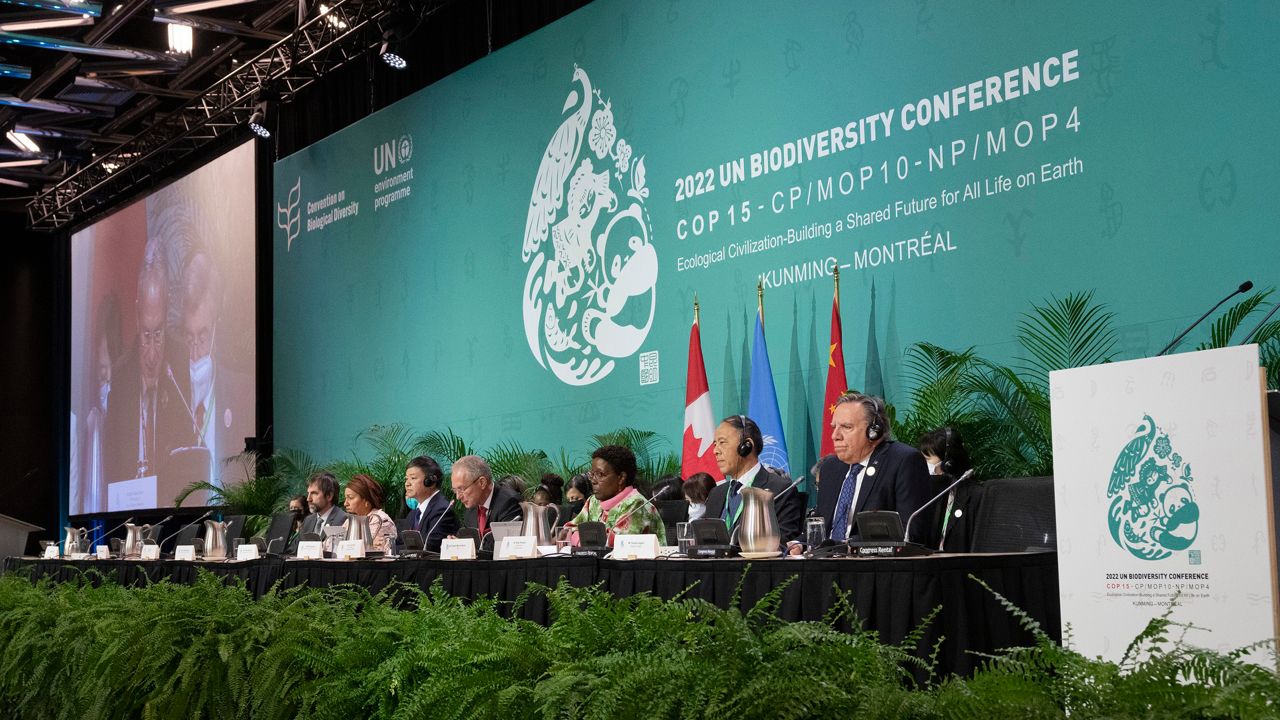A pair of lawmakers on Wednesday announced a new legislative push to block U.S. arms sales to Saudi Arabia, one week after the oil giant sided with Russia in deciding to cut back oil production along with other OPEC+ countries.
Sen. Richard Blumenthal, D-Conn., and Rep. Ro Khanna, D-Calif., held a press conference to formally preview new bills in the Senate and the House that would immediately block arms sales, support services and spare part supplies to Saudi Arabia for one year.
“If it weren’t for our technicians, their airplanes literally wouldn’t fly,” Khanna said on Capitol Hill Wednesday.
The Senate version of the bill was first introduced by Blumenthal ON Tuesday.
“There's a national security concern, because we were selling highly-sensitive advanced technology to a country that has aligned itself with an adversary, Russia, that is committing terrorist war crimes in Ukraine,” the senator said.
OPEC+, which includes Russia as well as Saudi Arabia, announced last week it would cut production by 2 million barrels a day, which will help prop up oil prices that are allowing Russian President Vladimir Putin to keep paying for his eight-month invasion of Ukraine. The production cut also hurts U.S.-led efforts to make the war financially unsustainable for Russia, threatens a global economy already destabilized by the Ukraine conflict and risks saddling Biden and Democrats with newly rising gasoline prices just ahead of the U.S. midterm elections.
President Joe Biden on Wednesday also promised “action” when lawmakers come back from their current recess in November.
"We’re going to react to Saudi Arabia and we’re doing consultation when [lawmakers] come back. We will take action,” he told reporters before leaving on a three-day trip to the western U.S.
White House national security adviser Jake Sullivan on Wednesday said the process of reevaluating the U.S. relationship with the kingdom is “underway,” and will continue until Congress returns.
“One question [the president is] going to ask is: Is the nature of the relationship serving the interests and values of the United States? And what changes would maybe better serve those interests and values?” he said. “He will, at a time and place of his choosing, lay out how he intends to proceed with respect to the relationship.”
Earlier this week, Sen. Robert Menendez, a New Jersey Democrat, said it was unacceptable that OPEC+ had moved to cut oil production and effectively assist Moscow in its war on Ukraine. Menendez promised to use his position as chairman of the Senate Foreign Relations Committee to block any future arms sales to the Saudis.
Blumenthal and Khanna’s bicameral legislation would halt all transfer of military supplies, sales and other weapons aid to the country, including the sale of spare and repair parts, support services and logistical support.
Any legislation would have to wait for consideration until November, when lawmakers return after the midterm elections.
“The Saudis need to come to their senses,” Blumenthal said Wednesday. “They have committed a humongous blunder, very much against their own economic and security interests, as well as ours.”
The Associated Press contributed to this report.






